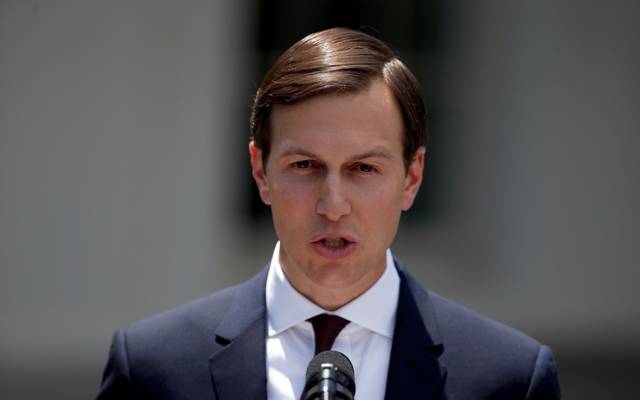“We’ll see if the leadership on both sides has the courage to take the lead to try to go forward,” Kushner said regarding the soon-to-be-released ‘deal of the century.’
By Atara Beck, World Israel News
White House senior adviser Jared Kushner, U.S. President Donald Trump’s son-in-law, was interviewed at the TIME 100 Summit Tuesday, answering questions on a wide range of issues, including criminal justice reform, the Mueller report findings, the Middle East, immigration, his role in the Trump administration, and more.
Asked about the U.S. relationship with Saudi Crown Prince, who, according to U.S. Intelligence Services, ordered the murder of Saudi journalist Jamal Khashoggi, Kushner said he would not dispute the intelligence agency nor would he discuss intelligence-related issues.
What he did say was that during the president’s trip to Saudi Arabia in May 2017 – his first trip abroad as president – the administration laid out its top four priorities in the region.
Number One Priority: Iran
The number one priority, he said, is “countering Iran… We worked with allies to push back at Iran’s aggression.”
“Everywhere in the Middle East where you look, there’s terrorism…all being funded by Iran, and they’re trying to destabilize the region. They chant Death to America, Death to Israel,” he added.
The second priority, he said, was to defeat ISIS, and “we have now destroyed the physical caliphate and taken that land back.”
Third is “defeating the ideology of extremism. We’ve worked very closely with the Saudis to try to figure out how do you clean out a lot of the poison that was being taught in the mosques, and I think we’re making more progress than people thought we would be able to do.”
The fourth priority is the Israeli-Palestinian peace process. Kushner reiterated that President Trump’s long-awaited peace plan for the Israelis and Palestinians will be unveiled after Ramadan, which ends on June 4.
‘We’ve Taken an Unconventional Approach’
“Hopefully it provides a framework to maybe break through a very difficult problem that’s been plaguing that region for a very, very long time. We’ve taken an unconventional approach,” analyzing why previous attempts have failed, he said, while allowing that “there’s been some tremendous work done” by previous negotiators.
“We’ve tried to do it a little bit differently,” Kushner explained. “Normally they start with a process and then hope that the process leads to a resolution for something to happen. What we’ve done is the opposite. We’ve done very extensive research and a lot of talking to a lot of the people. We’re not trying to impose our will.”
Asked whether the plan will involve a two-state solution and whether it could get Arab countries’ support, he didn’t answer the question directly, saying, “I think that if people focus on the old traditional talking points, then we’ll never make progress.
“Our focus is really on the bottom up, which is: How do you make the lives of the Palestinian people better? What can you resolve to allow these areas to become more investable? We deal with all the core status issues because you have to do it, but we’ve also built a robust business plan for the whole region…
‘Tough Compromises for Both’
“I think that the two together have the opportunity to push forward,” he continued. “And then, from Israel’s point of view, their biggest concern is just security.
“We’ve done a lot of things that are very important for Israel’s security. That’s one of the president’s priorities; he campaigned on it…
“I’m not saying they’re going to look at it and say, this is perfect and let’s go forward. I’m hopeful that what they’ll do is to say, look, there are some compromises here, but at the end of the day, this is really a framework that can allow us to make our lives all materially better. And we’ll see if the leadership on both sides has the courage to take the lead to try to go forward…
“There’ll be tough compromises for both,” Kushner said.
